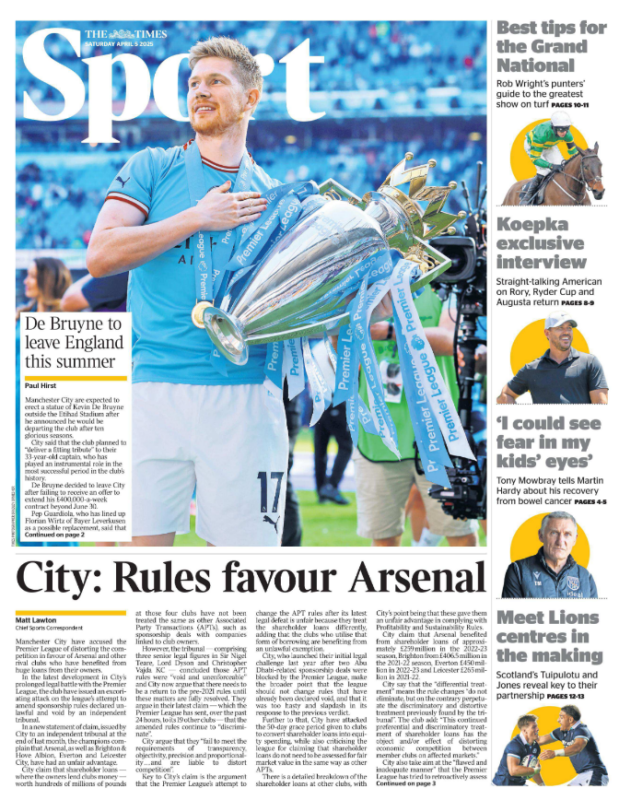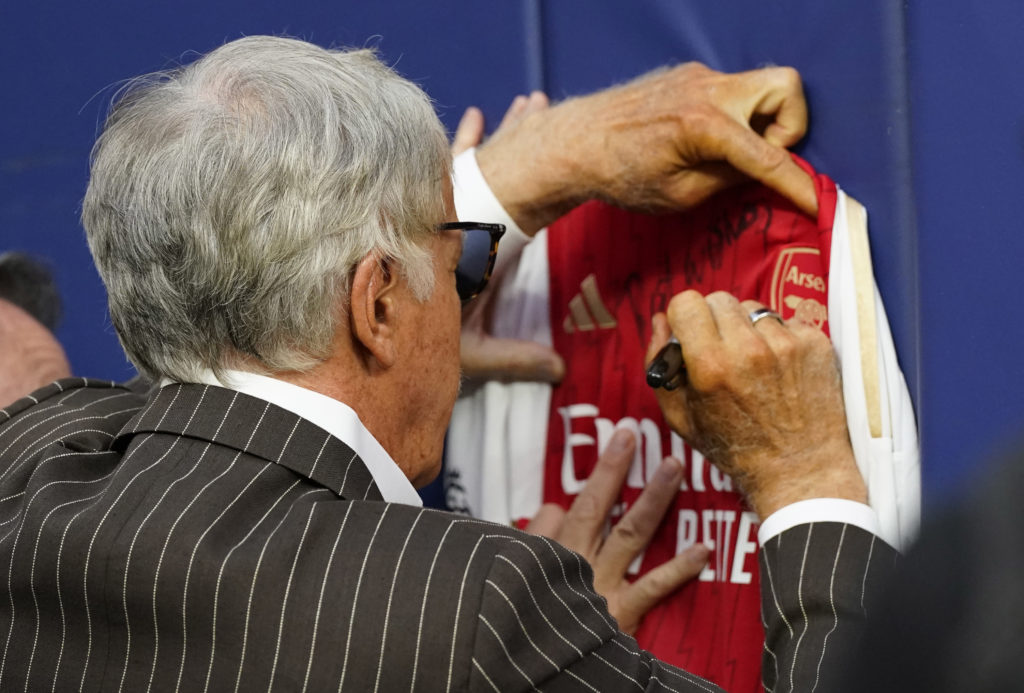According to the Times on Saturday, Man City have accused the Premier League of favouring clubs like Arsenal

Manchester City have launched a fierce legal attack on the Premier League, alleging that recent financial rules changes continue to unfairly favour clubs like Arsenal, who have received substantial loans from their owners.
According to The Times, the reigning champions have filed a fresh statement of claim with an independent tribunal, accusing the league of perpetuating discriminatory financial practices that distort competition. Seriously.
At the core of City’s complaint is the league’s handling of shareholder loans — specifically, financial injections from club owners that are not subject to the same level of scrutiny as other Associated Party Transactions (APTs), such as sponsorships from related entities. City argue that clubs including Arsenal, Brighton, Everton, and Leicester City have benefited from this exemption, giving them what City describe as a “preferential and discriminatory” economic advantage.

City claim that Arsenal received shareholder loans of around £259 million during the 2022–23 season, asserting that such funding allowed the club to comply with Profitability and Sustainability Rules while still investing significantly in the squad. Brighton, Everton and Leicester are said to have received £406.5 million, £450 million, and £265 million respectively in similar periods.
Following a previous legal challenge, an independent tribunal ruled in February that the Premier League’s original APT rules were “void and unenforceable.” In response, the Premier League amended its rules, maintaining that the updated framework was now compliant. City disagree, claiming: “This voidness means that the amendments are themselves void, because it is not legally possible to amend rules that are themselves void.”
City further argue that the league’s reliance on two part-time, non-executive board members to retrospectively assess the fair market value of shareholder loans — without input from independent financial experts — is a deeply flawed process. They insist this approach undermines transparency, objectivity and proportionality, continuing to give Arsenal and others an unfair competitive advantage.
“This continued preferential and discriminatory treatment of shareholder loans has the object and/or effect of distorting economic competition between member clubs on affected markets,” the club wrote in its claim.
The legal challenge, which remains separate from the 130 ongoing charges brought against City over alleged financial rule breaches, is being overseen by the same tribunal that previously ruled in the club’s favour. Sir Nigel Teare, Lord Dyson, and Christopher Vajda KC are again presiding.
At the time of the tribunal’s earlier decision, Premier League CEO Richard Masters suggested that only minor adjustments to the rules were needed. But City’s general counsel Simon Cliff warned the league to pause until it was clear whether the entire rulebook — not just parts of it — had been invalidated.
The Premier League declined to comment when contacted by The Times, but the implications of this latest legal front are significant. Should City succeed again, the league may be forced into yet another round of regulatory changes, further straining its legal position and exposing broader questions about competitive fairness and governance.
